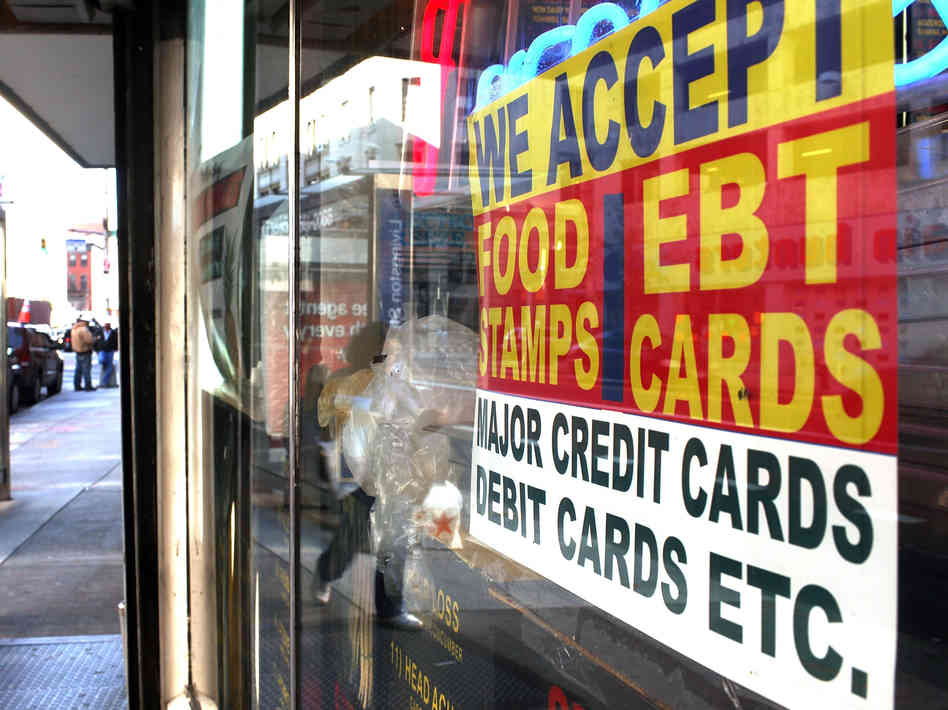Teaching macroeconomics with a group of union stewards and local leaders last month, I had just finished explaining the enormous economic stimulus the combination of “food stamps” and unemployment compensation is providing to our struggling economy. When you include the “macroeconomic multiplier effects” of these “automatic stabilizers,” it was about $260 billion in 2012, and that was enough to create or save some 3 million jobs—“possibly including yours.”
Having taught this subject many times before, I was ready for somebody to complain about having seen a “food stamp” recipient use their SNAP card to buy caviar or lobster at the Jewel. When nobody did, I smirkily recounted my past experience with students anyway, because that experience has caused me to wonder if this widely reported occurrence might be an urban legend. Over the years most students, when questioned, hadn’t seen such an incident themselves but had been told about it. Once I asked, “Do they even sell caviar at the Jewel?”—and nobody knew.
| I don’t get how anybody might see a SNAP recipient being a bit extravagant (or even a lot extravagant) as a moral challenge to a policy that creates or saves 3 million jobs. |
At break David, a youngish Teamster truck driver, told me about a SNAP recipient he had seen buying steak, which troubled him because “we have to stretch every dollar” buying groceries. He asked: “So you’re saying this shouldn’t bother me because it’s stimulating the economy and creating jobs?”
With what seemed like half the class gathered to hear my answer, I pulled out my standard response: “Yeah, basically that is what I’m saying. But it depends on the magnitude. If it was widespread, it might be a problem, but there is no evidence that it is. Besides how would the government enforce something like that? It could cost $1,000 to catch someone buying a $20 steak!”
My answer, with its rough-and-ready cost-benefit analysis, satisfied a large group of students, who walked away to go on break, but not David: “But it’s still wrong. It costs a lot to investigate murder too.” At which point an older Teamster driver from the same local intervened: “What do you give a shit if somebody has a little steak? It’s not murder! More like speeding on the toll way.” Being the professor, I went all Socratic on David: “What kind of steak was it anyway—London Broil or filet mignon?” (inadvertently implying that London Broil was like speeding while buying filet mignon could be like murder!). This shut David up, as it was clear from his facial expression that he didn’t know the difference between high-priced and low-priced steak, and it occurred to me that he and his family might never themselves have enjoyed a steak. The older Teamster put his arm around David and jibed as they started out for break, “Don’t be an asshole. That steak was probably delivered in a truck.”
On reflection I regret opening this door about what SNAP recipients should be allowed to purchase (they are and always have been allowed to buy steak and lobster) and what they actually do purchase (which nobody knows, but I’m guessing is almost never steak and lobster). I’m trying to teach about how deficit-spending and the high-powered multiplier effects of social safety net measures are crucial for reducing unemployment in a depressed economy. And I end up in a discussion about whether some poor soul buying a slice of London Broil is “taking advantage” of us hard-working taxpayers.
As a middle-class professional who often eats steak (including filet), I don’t get how anybody might see a SNAP recipient being a bit extravagant (or even a lot extravagant) as a moral challenge to a policy which creates or saves 3 million jobs—that is, 3 million “livelihoods,” such as they are. We could argue about the size of the multipliers—or about the potential downsides of deficit-spending. But the fact is that the $135 average monthly SNAP allotment, especially when combined with an average $300 weekly unemployment compensation check, is nearly as valuable to the rest of us as it is to those who receive them. These meager individual amounts spread across millions of recipients inject consumer spending power into an economy that greatly needs it because we live in a society where most income flows to the top 10 or 11 percent. Without these welfare-state “transfer payments,” unemployment would be much worse and, as a result, real wages and median household incomes would be declining even more than they have been. And as Benjamin Friedman’s classic The Moral Consequences of Economic Growth exhaustively documents, these minor individual ameliorations correlate with more peace, less war and less crime, as well as with more prosperity for everybody.
I have learned, however, not to be indifferent to the moral concern some people have about cheaters and slackers “taking advantage.” Even a handful of people gaming the system challenges the hyper-vigilant work ethic of many settled-living working-class people, especially white men, but not only them. Like David, who is Latino, they tend to be a certain social type: They live frustratingly on the edge of a cliff doing work they often hate and struggling every day to keep themselves together, incessantly delaying gratification, “stretching every dollar,” never “letting themselves go” lest they fall off that cliff, taking their families with them.
There are a lot of people on that cliff, and a large group of them seem to think that a stern prejudice against “the poor” helps sustain the integrity of their own characters. Along with a superstition that “bad things do not happen to good people,” they hope their good characters will protect them from falling into poverty. A recent Hamilton Project study documents that at least one-third of working-age families with children (with incomes of up to $60,000) are “one major setback” away from “economic chaos.” Neither poor nor comfortably middle class, this group is dubbed by the study as “America’s struggling lower-middle class,” what many of us would call “working class.” It is also roughly the same income group ($30,000 to $75,000, in this case) that is most likely to blame the poor for being poor.
It is something like this complex social psychology that Republicans play into when they seek to justify cutting “food stamps” and extended unemployment compensation. Their latest efforts are especially hypocritical. A recent Fox News video of a surfer lad exuberantly buying lobster with his SNAP card evoked the cheaters-and-slackers meme. But the actual cuts Republicans have achieved and additional ones they are now seeking just cut benefits across the board and lop people from the program without any attempt to distinguish the cheaters from the frugally hungry. Surfer lad will still be able to buy lobster while bad things will happen to good people.
Worse to my mind, however, is the recent argument Republicans make for not extending unemployment compensation for the long-term unemployed. On the one hand, they insist that the $25 billion it would cost to fund for all of 2014 “be paid for” with cuts from somewhere else, thereby undermining the stimulative job-creating impact it would have. On the other, they insist on the need to address “the real problem: to find these people jobs.” Though some Tea Party crazies may not be aware of it, the GOP leadership group surely knows that, according to both the Congressional Budget Office and one of their own economic advisers (Moody Analytics), unemployment compensation has a multiplier effect that creates five times more jobs than corporate tax cuts do. The only federal government job-creation proposal from either party that has a larger macroeconomic multiplier effect, and thus creates more jobs, is the Supplemental Nutrition Assistance Program (SNAP).
I have about as much contempt for welfare cheaters as anybody on a cliff, but even surfer lad is a moral paragon compared to these guys.
Jack Metzgar is a core member of the Chicago Center for Working-Class Studies. He writes for Working-Class Perspectives, where this originally appereared.






0 Comments